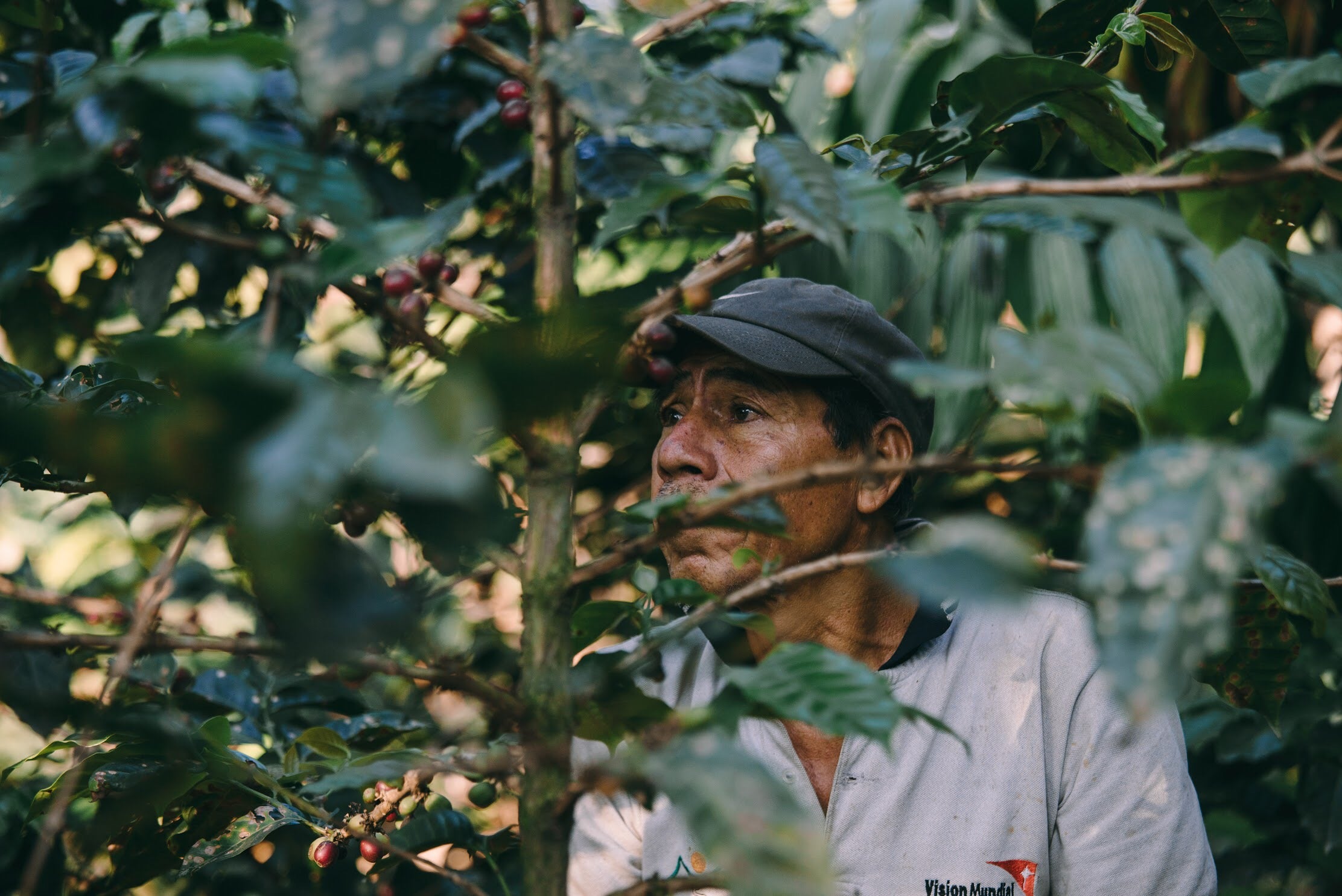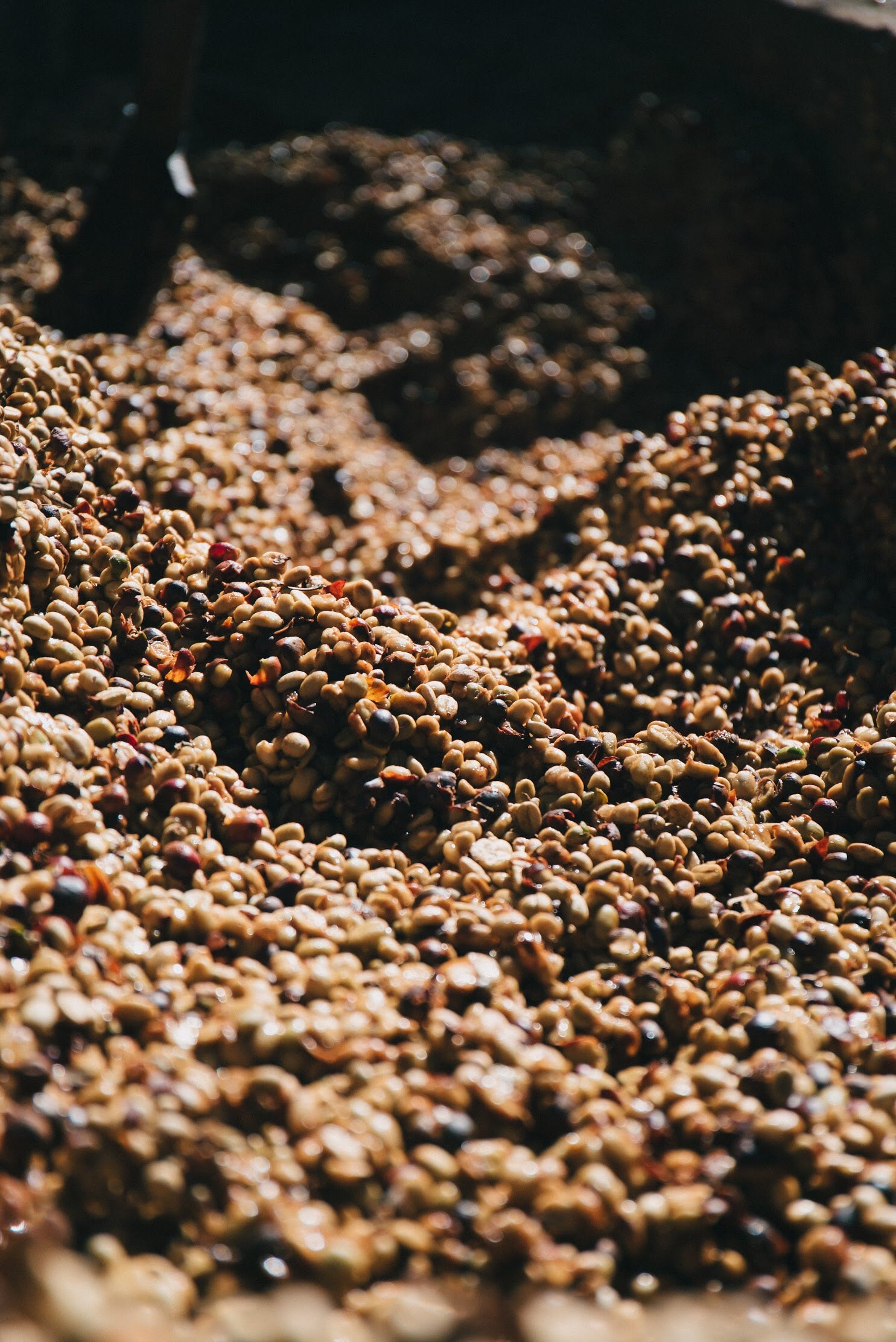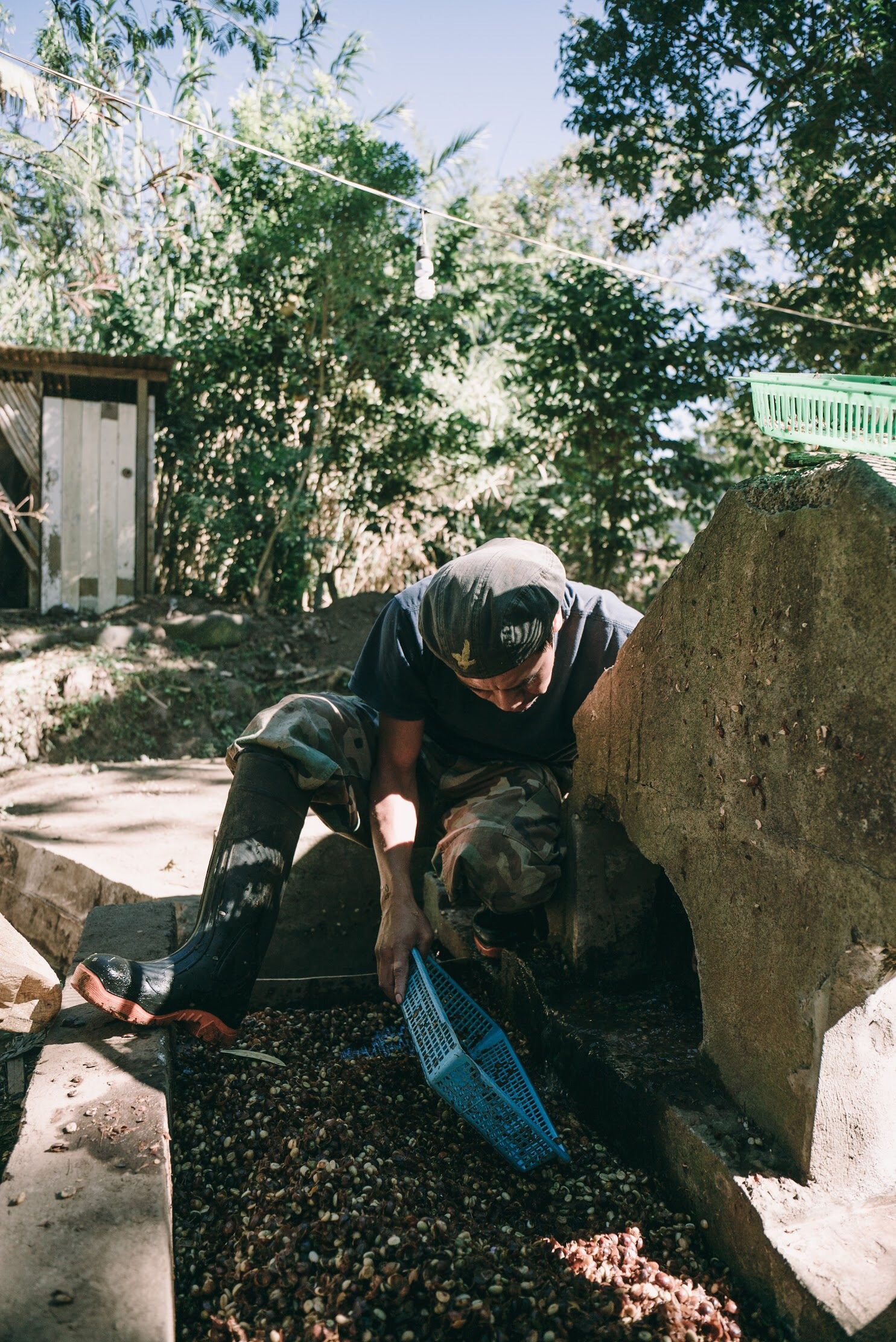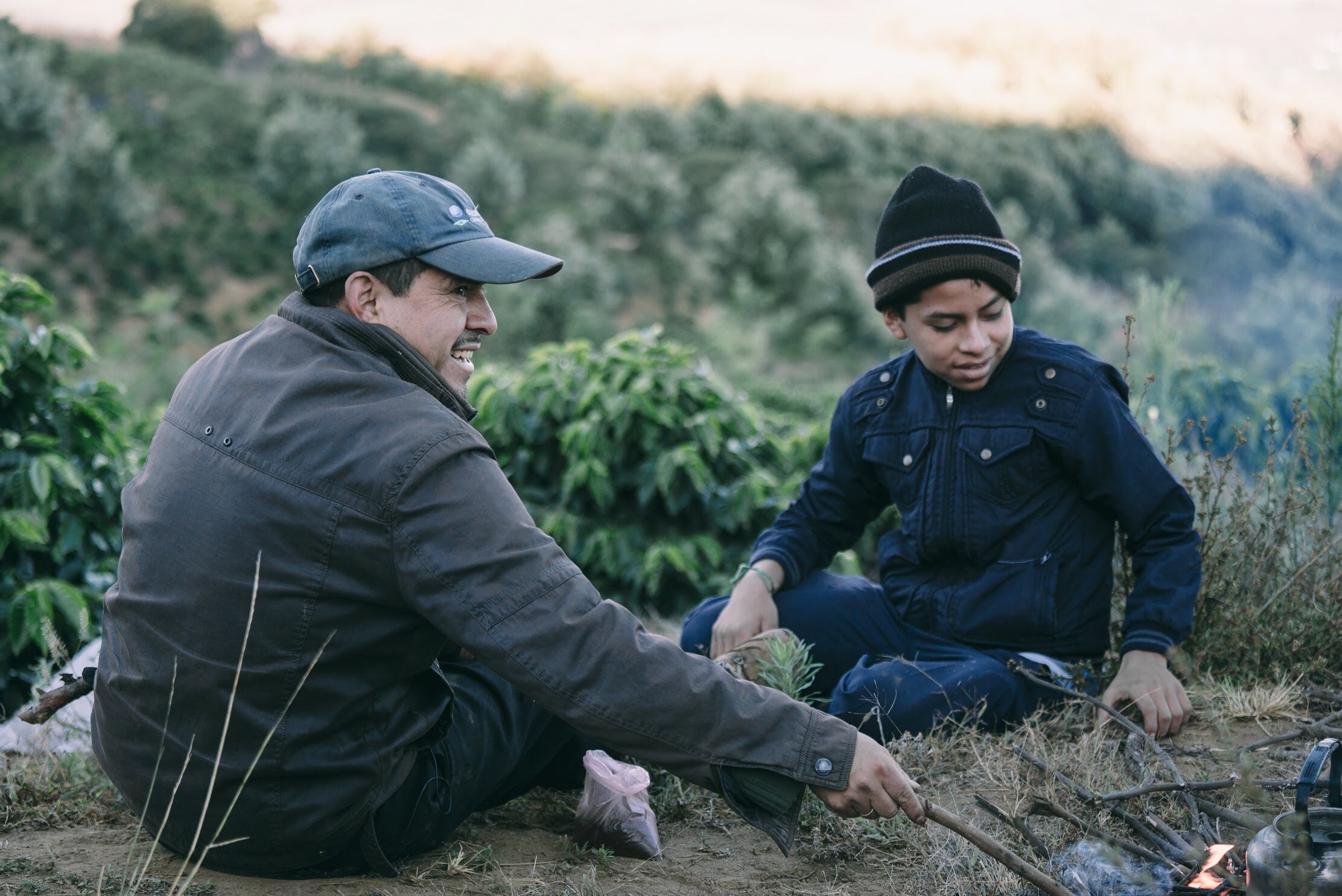In recent years, market trends have pushed for more and more organically certified products- as conscious consumers take an interest in both their own health and the health of the environment. Here at Coffeebar, this trend is one that runs consistent with our entire philosophy, and one that we actively encourage.
So why then is none of our coffee certified organic?
Our work within the industry has led us to feel that a focus on buying only organic-certified coffee is not the best strategy for supporting small producers. For the sustainability of our industry, we feel that it should be a focal point of our work to ensure economic viability for all of our producing partners.

“There can be a tendency from the consumer perspective to view certifications as panaceas. The trouble is when we don’t dig any deeper to truly understand what those certifications really mean.”
Organic certification is unfortunately a lot more complicated than a simple label that says ‘this coffee is good for the environment and your body.’ When it comes to the specialty coffee industry, the issue of organic certification is a complex one, and at its full scope deals with issues as diverse as economic viability, community marginalization, environmental sustainability, and market ethics.

There can be a tendency from the consumer perspective to view certifications as panaceas. This product is certified ‘Organic,’ or ‘Fair Trade,’ thus I can feel good about purchasing it. The trouble though is when that superficial gloss of the situation means that we don’t dig any deeper to truly understand what those certifications really mean.
“Certifications are limited, and if we view them as the be-all and end-all we’re restricting ourselves severely, and closing off the potential of further evolving and improving our industry.”
Now, an important note: Coffeebar is not against the idea of certifications. In the specific example of coffee, Fair Trade and Organic certifications have been important stepping stones in the search to create a more traceable and economically sustainable market environment. The problem however, is that certifications are limited, and if we view them as the be-all and end-all we’re restricting ourselves severely, and closing off the potential of further evolving and improving our industry.
Fundamentally, two of the primary concerns we have with the idea of operating under an ‘organic only’ policy are 1) prohibitive certification costs and the subsequent possibility of community marginalization, and 2) in the majority of business models, the primary risks of organic production falls not on the roaster or importer, but on the producer.
A Big Economic Risk for Small Farmers
To elaborate on the first point, certifications, while often registered as non-profits or government agencies, still need to be economically sustainable. The cost of sending assessors to individual farms can be quite high, the certifications themselves need to be promoted and essentially ‘sold’ as brand identifiers, and the market actually sees a high level of competition (Fair Trade, Organic, Rainforest Alliance, Bird-Friendly, and UTZ, to name some of the big players). Each of these certifications cost the farmer money, and for small producers this cost can be prohibitive.
“An unintended consequence of this strict adherence to a ‘certification only’ policy is the possibility of excluding small-producers from our supply chain.”
The potential bump in sale price of organic-certified coffee will only prove a worthwhile investment to those farmers producing sufficient volume of coffee to offset the upfront costs. Furthermore, that extra value on the sale price is not guaranteed with organic certification. If the farmer doesn’t have a buyer willing to pay a higher price for the value-add of the certification, then they may well be forced to sell all or part of their organically-certified crop into conventional or more traditional commodity streams, at commodity prices.
What can happen as a result is that buyers in consuming countries who refuse to consider any coffee not carrying the organic certification may wind up skewing their purchases towards certified coffees produced by the larger plantations that can more easily afford the upfront costs associated with certification. So an unintended consequence of this strict adherence to a ‘certification only’ policy is the possibility of excluding small-producers from our supply chain.
And so, in an effort to promote economic sustainability in producing communities, we at Coffeebar prefer to use our purchasing power to support those small producers, who may or may not be certified. In fact, the idea operates much in the same way as you may choose to spend your consumer dollars at Coffeebar, promoting the local culture we provide, rather than at a national chain coffee shop. Similarly, we choose to focus our origin purchasing on communities where that investment can help improve the quality of life there, and potentially go further to improving the long-term economic stability of the regions that produce the coffee we consume.
“Our focus with our roasting and sourcing program is to be so thoroughly involved with where we source each particular coffee that we have a complete understanding of what went into its processing.”
For our industry to continue to thrive, the younger generation in producing countries has to see production of coffee in these regions as a viable economic future, and we can be a part of that by intentionally sourcing from and supporting these communities.
It Doesn’t End There
Another potential pitfall of the idea of organic certification is the risk factor. We touched above on the increased upfront cost of certification, but the required investment from a farmer doesn’t end there. Organic production typically requires a higher investment in labor than commercial farming, because without recourse to certain pesticides or agricultural inputs, coffee trees require more maintenance and more attention dedicated to pruning, creating organic inputs, and overall crop maintenance. The cost of this added labor can begin to cut into the higher profit margin that organic-certified coffee is promised to provide to the farmer. And that’s still not taking into account the lower yields that can be quite common with organic production. When all is said and done, the premium offered by carrying organic certification may never even be seen by the farmer.
“As conscious consumers on this end of the supply chain, so far removed from origin, we need to be careful of making increasingly exigent demands that place unrealistic burdens on producers.”
And this is when things are good. As with any crop, there is always the potential for things to go very bad. And this perhaps is our biggest issue with demanding organic certification of a producer. Beginning in 2012 in Central America, an epidemic of the fungus roya, or coffee leaf rust, led to an average drop in production of 15-20%. Up to 40% of coffee trees were affected, with certain regions hit harder than others, and some losing their trees entirely. A lot of work is currently being done to create organic fungicides and other products that can combat roya and other coffee diseases, but these are still uncommon and expensive. There has also been a lot of investment recently in the study and distribution of rust-resistant varietals by organizations like World Coffee Research. Unfortunately, these varietals can be hard to come by, especially for smaller or more remote producers, and they are also sometimes linked to lower cup quality. Meaning that the most effective treatments unfortunately are often still chemical.
Here’s the problem: When we demand organically-certified coffee from a producer, we’re offering to pay a premium for that coffee. But as an industry, we’re only offering to pay a premium for the coffee produced. If a farmer contracts with an importer or roaster to provide a set volume of coffee, but then can’t provide the full contract amount because they’ve lost a significant portion of the harvest that could have been saved by using conventional fungicides, then the burden of that lost revenue is carried wholly by the farmer. This placement of risk solely on the producer is ethically problematic. As consumers, we are not the ones dealing with a changing climate significantly affecting our harvest and increasing the prevalence of certain diseases. As conscious consumers on this end of the supply chain, so far removed from origin, we need to be careful of making increasingly exigent demands that place unrealistic burdens on producers.

Sharing the Burden
It’s why at Coffeebar, we subscribe to the principal of ‘as organic as possible.’ We don’t put a focus on any of our coffees carrying organic certification, but neither do we purchase coffee in a cavalier manner, with no thought or regard for the consequences of its production. Our focus with our roasting and sourcing program is to be so thoroughly involved with where we source each particular coffee that we have a complete understanding of what went into its processing. By working in some cases directly with the farmers, and in others with importers who share our commitment and values, we can assure ourselves that the producers didn’t cut any corners or apply chemical fertilizers just because it was easier to do so.
“By working with [producing parters] to build trust over the long-term, we can be involved in continually improving the quality of their product, whilst also taking the time to understand and address as many environmental concerns as we can.”
For example, the farmers with whom we work in Antigua, Guatemala produce coffee in shade-grown conditions, with high levels of biodiversity and interspecies cropping, and with organic bio-fertilizers and compost as their primary agricultural inputs. They do, however, apply chemical fungicides during the off-season to treat and prevent roya. In an ideal world, these chemicals will one day be replaced with organic alternatives. But until that becomes a viable alternative, our primary focus is on maintaining a strong relationship with these producers, investing in and supporting their communities. By working with them to build trust over the long-term, we can be involved in continually improving the quality of their product, whilst also taking the time to understand and address as many environmental concerns as we can. By having that relationship with all of our producing partners, we can go a lot further towards creating sustainability, both environmental and economic, than if we were to merely buy certified organic coffee without concerning ourselves with the local realities.

A Commitment for your Grandchildren’s Granchildren
One final thought regarding concerns about the potential health effects of non-organic coffee, both on the consumer and on the farmers exposed to those chemicals. There is very little data that demonstrates any kind of risk level from drinking non-organic coffee. One study showed a reduction of chemicals of 99.8% during the roasting process, and zero detectable residue in the resulting brew. And this was with coffee beans artificially spiked with pesticides, after harvesting and processing. Keep in mind we’re talking about the smaller producers of specialty coffee that we work with, and so can’t vouch for larger producers of commercial grade coffee, but the small amount of chemicals that are used are not used during harvest season. Furthermore, coffee beans go through a multi-stage processing of de-pulping, fermenting, washing, and drying, the beans themselves being seeds that reside inside two layers of protective covering between them and the fruit. Due to the nature of coffee production, and the steps of processing and roasting involved, full organic production is more about environmental concerns, than any proven benefit to quality or safety of the coffee itself.
Regarding those environmental concerns, we would stress that many smallholders are already ‘passively organic,’ or largely so, as outlined above with the example of our partners in Antigua. Whether it be due to expense, limited access, or ideology, many producers are producing largely organic coffee, only without the certification.
“Our pledge here to you is that organic food production is of primary importance to us.”
Now, we do agree with concerns that the application of chemicals can be harmful to the farmers and their communities. But when those chemicals are used as sparingly as possible, and with full safety measures in place, we would argue that we don’t have the moral weight to stipulate further restrictions that could negatively affect farmers’ livelihood.
Our pledge here to you is that organic food production is of primary importance to us. But so too is ethical sourcing and our ability to provide a high standard of living, not only for our employees here locally, but also for our producing partners globally. This is a long-term commitment, and we will continue working with and investing in all our partners until we reach our goals together.
